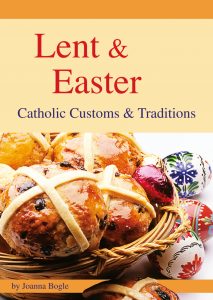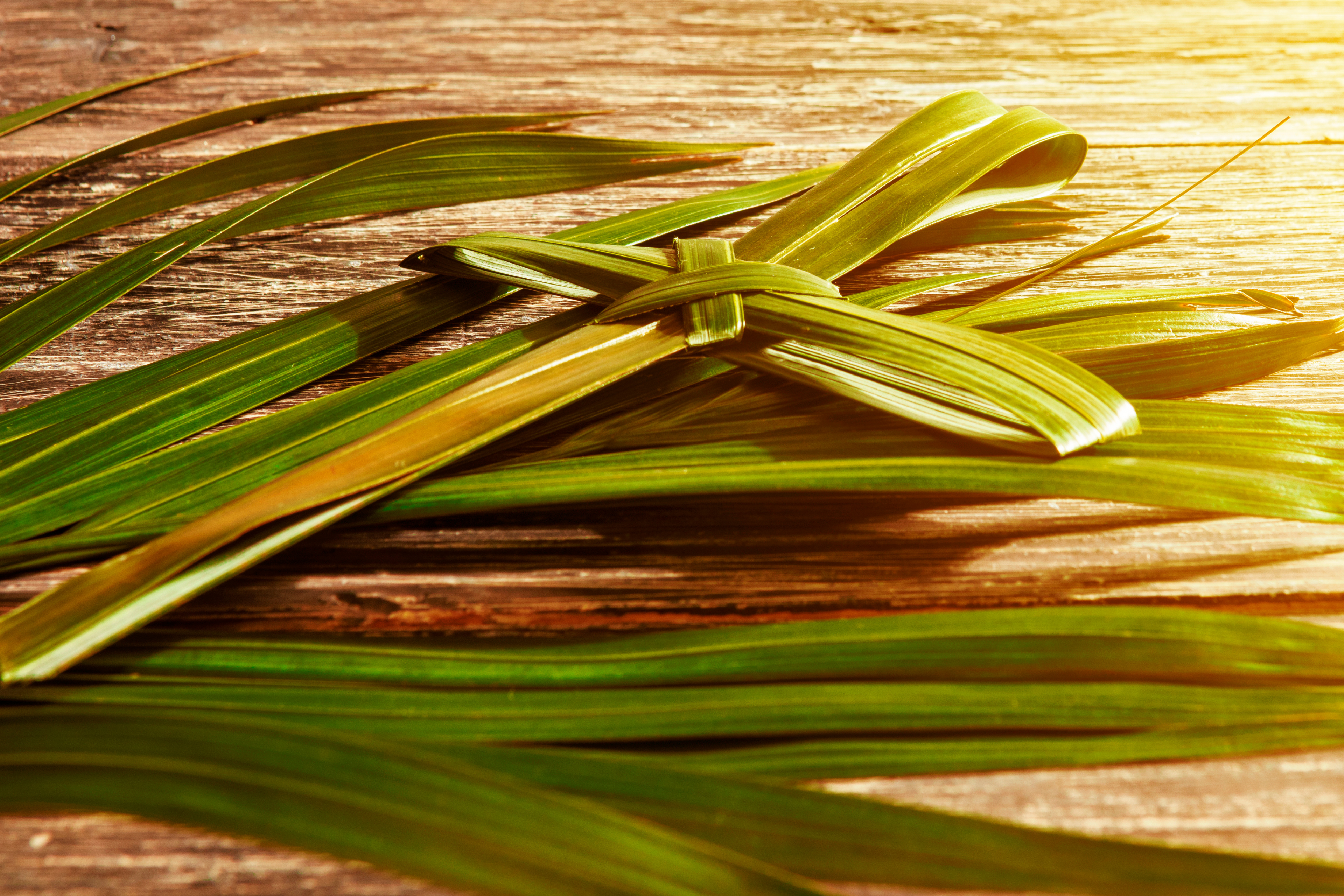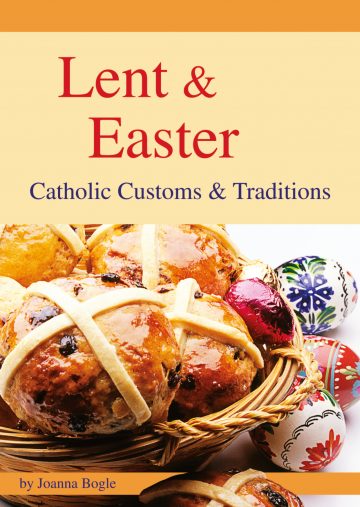“All glory, laud, and honour to Christ, Redeemer, King, to whom the lips of children made sweet hosannas ring! The people of the Hebrews with palms adorned your way; our praise and prayer and anthems we offer you this day. All glory, laud, and honour to Christ, Redeemer, King!” (Hymn for Palm Sunday)
Slowly the days of Lent pass, and the final week approaches. It is Holy Week, when the whole Church around the world commemorates the great events of Christ’s passion and death and resurrection. This is the most important week of the Church’s year.
Palms
The first day of Holy Week is Palm Sunday. On this day we commemorate the triumphant entry of Christ into Jerusalem. The people tore branches from the palm trees to wave and to throw on the ground before him, to make a carpet on which his donkey could ride. Today, we will carry palm branches in procession as Mass begins. There will be hymns such as “Ride on, ride on in majesty!” Some parishes manage a procession down a local street, for others it is around the car park or just across the land separating the church from the parish hall.
“The next day a great crowd who had come to the feast heard that Jesus was coming to Jerusalem. So they took branches of palm trees and went out to meet him crying ‘Hosanna! Blessed is he who comes in the name of the Lord, even the king of Israel!” (Jn 12:12-13)
Did you know that every donkey has a cross marked on its back? Check it out next time you see a donkey in a field or at a farm or zoo. It is there, clearly marked in the fur. Tradition says that this is because of the donkey that carried the Lord on that first Palm Sunday.
The palms we are given at Mass on Palm Sunday have been blessed and should be treated as holy objects. It is traditional to fold your Palm Sunday palm into a cross, which can then be tucked up behind a picture or crucifix at home, or perhaps used as a marker in a missal or prayer book.
On Palm Sunday the passion of Christ is read aloud in church, and we stand throughout, holding our palm branches. Holy Week begins to take on its special atmosphere.
“Jesus’ entry into Jerusalem manifested the coming of the kingdom that the King-Messiah was going to accomplish by the Passover of his Death and Resurrection. It is with the celebration of that entry on Palm Sunday that the Church’s liturgy solemnly opens Holy Week.”
During Holy Week, the statues and crucifixes in the church will be covered with purple cloth. This is a sign that the Church is, in a sense, in mourning. We do not have the usual beauty and brightness that statues bring. Our minds are fixed on the passion and death of Christ.
 This blog is extracted from our ebook Lent and Easter. This booklet describes the rich heritage of customs and traditions long practiced by Catholics down the ages, up to today and how the liturgy in turn enriches their meaning.
This blog is extracted from our ebook Lent and Easter. This booklet describes the rich heritage of customs and traditions long practiced by Catholics down the ages, up to today and how the liturgy in turn enriches their meaning.
Download Lent and Easter from your preferred ebook platform.

